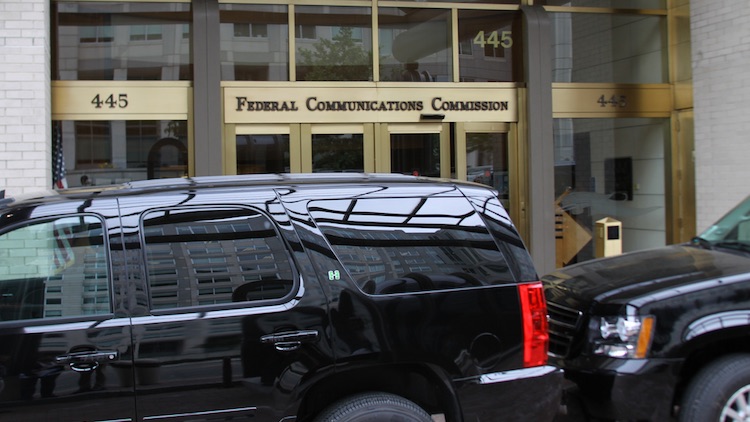FCC Gets Earful on Charter Decision

The smarter way to stay on top of broadcasting and cable industry. Sign up below
You are now subscribed
Your newsletter sign-up was successful
The FCC was hearing it from fans and foes of its decision April 3 to modify the Charter-Time Warner Cable merger to remove the mandate to overbuild one million homes that could already receive high-speed broadband.
Former FCC chairman Tom Wheeler was looking to promote more competition via the condition, but current FCC chairman Ajit Pai said the buildout requirement should have the flexibility to apply to homes without access to any high-speed broadband.
“When it first became public that the FCC was considering a far-reaching, late-breaking buildout mandate in connection with the Charter-Time Warner merger, we expressed serious concern about the implications of such a ‘condition’ on private investment,” said NTCA–The Rural Broadband Association CEO Shirley Bloomfield. “NTCA noted in particular that the notion of ‘mandated competition’ in high-cost rural areas would undermine the goals of universal service and needed careful coordination with the FCC’s own Connect America Fund reform initiatives. The FCC ignored these calls for coordination, and proceeded forward nonetheless. We are pleased to see the course correction in today’s order to help ensure that artificial measures to inject competition will not undermine private investment initiatives or our nation’s shared goals with respect to universal service in rural America.”
NTCA represents smaller telecoms that could be adversely affected by overbuilds.
Public Knowledge took issue with the decision, saying the condition should not have been open to revision.
“While it's not unusual for new FCC majorities to change existing policy, revisiting the terms of a merger approval is another matter," said Public Knowledge senior counsel John Bergmayer. "FCC merger proceedings are not typical Commission rulemakings, but are structured as complaints from potentially injured parties, with the Commission adjudicating the issues. Such adjudications should be presumed final."
“Today’s announcement by Chairman Pai reversing the mandatory overbuilding imposed on Charter Communications as part of the FCC’s merger approval is a big step toward restoring faith in the merger review process," said House Communications Subcommittee chairman Marsha Blackburn (R-Tenn.).
"We have long said that merger conditions should not be used to make an end run around the rule-making process to achieve unrelated policy goals,” said Blackburn. “As we work to ensure that all Americans have access to broadband, we should focus on targeting service to areas that are truly unserved, not attempting to manufacture competition through government mandated buildout. Today’s action will result in consumers in unserved areas benefitting from new broadband connectivity, and that’s something we should all celebrate."
The smarter way to stay on top of broadcasting and cable industry. Sign up below
“When selecting a broadband provider, consumers deserve more competition in the marketplace, not less," said Rep. Ro Khanna (D-Calif.), who represents Silicon Valley, though he characterized the change as "reversing an Obama Administration order that requires Charter Communications to expand service to more households."
He said that "[j]ust four companies – AT&T, Verizon, Comcast, and Charter Communications – dominate 70% of the marketplace and have done so for two decades," adding: "This latest move by the FCC is anti-competitive. The FCC is now protecting incumbent companies that provide broadband from competition from Charter. The only way to achieve affordable, high-speed internet access is by fostering a competitive marketplace that puts consumers first. Unfortunately, this FCC chair is more interested in protecting companies and trade associations than consumers.”
Contributing editor John Eggerton has been an editor and/or writer on media regulation, legislation and policy for over four decades, including covering the FCC, FTC, Congress, the major media trade associations, and the federal courts. In addition to Multichannel News and Broadcasting + Cable, his work has appeared in Radio World, TV Technology, TV Fax, This Week in Consumer Electronics, Variety and the Encyclopedia Britannica.

